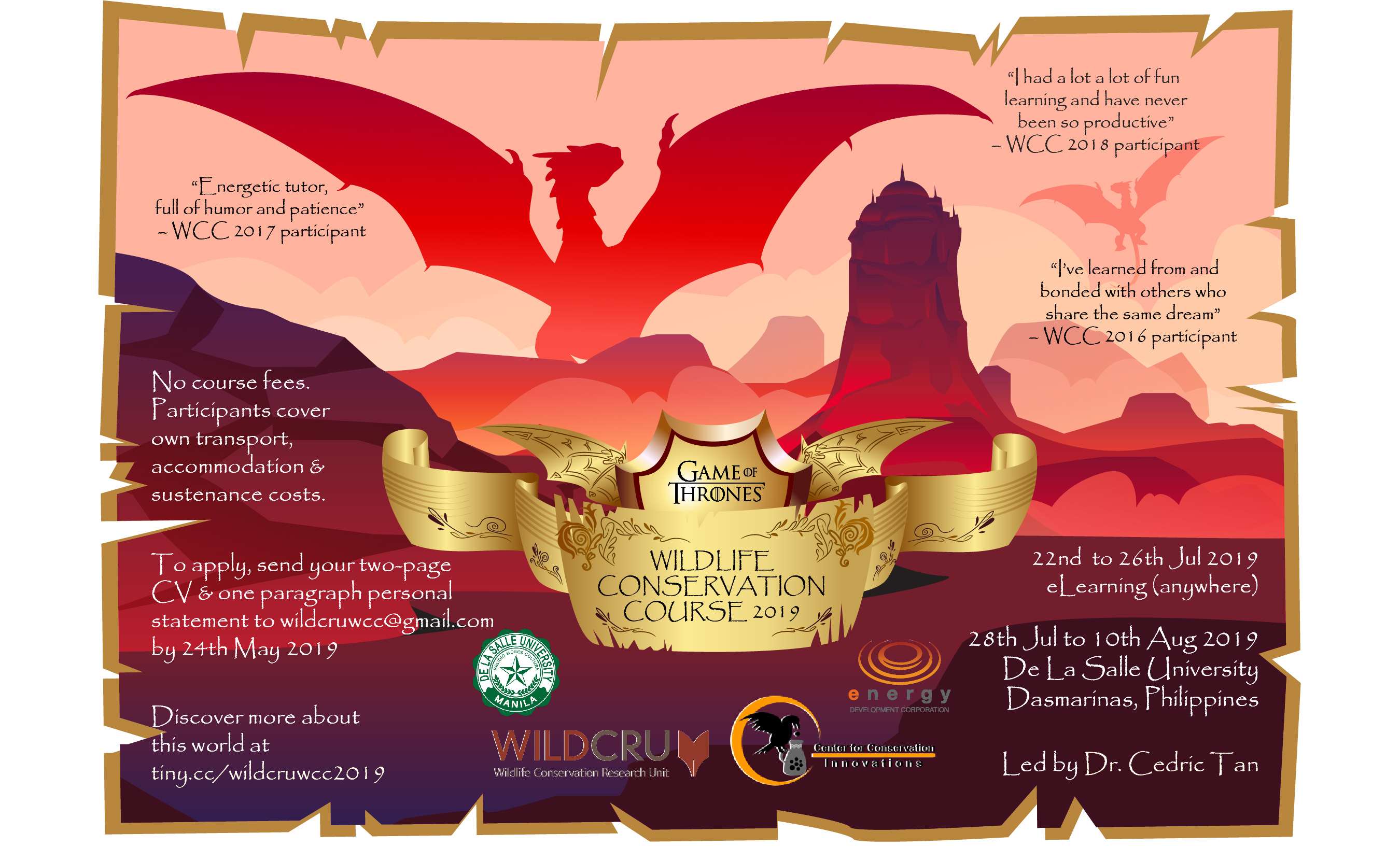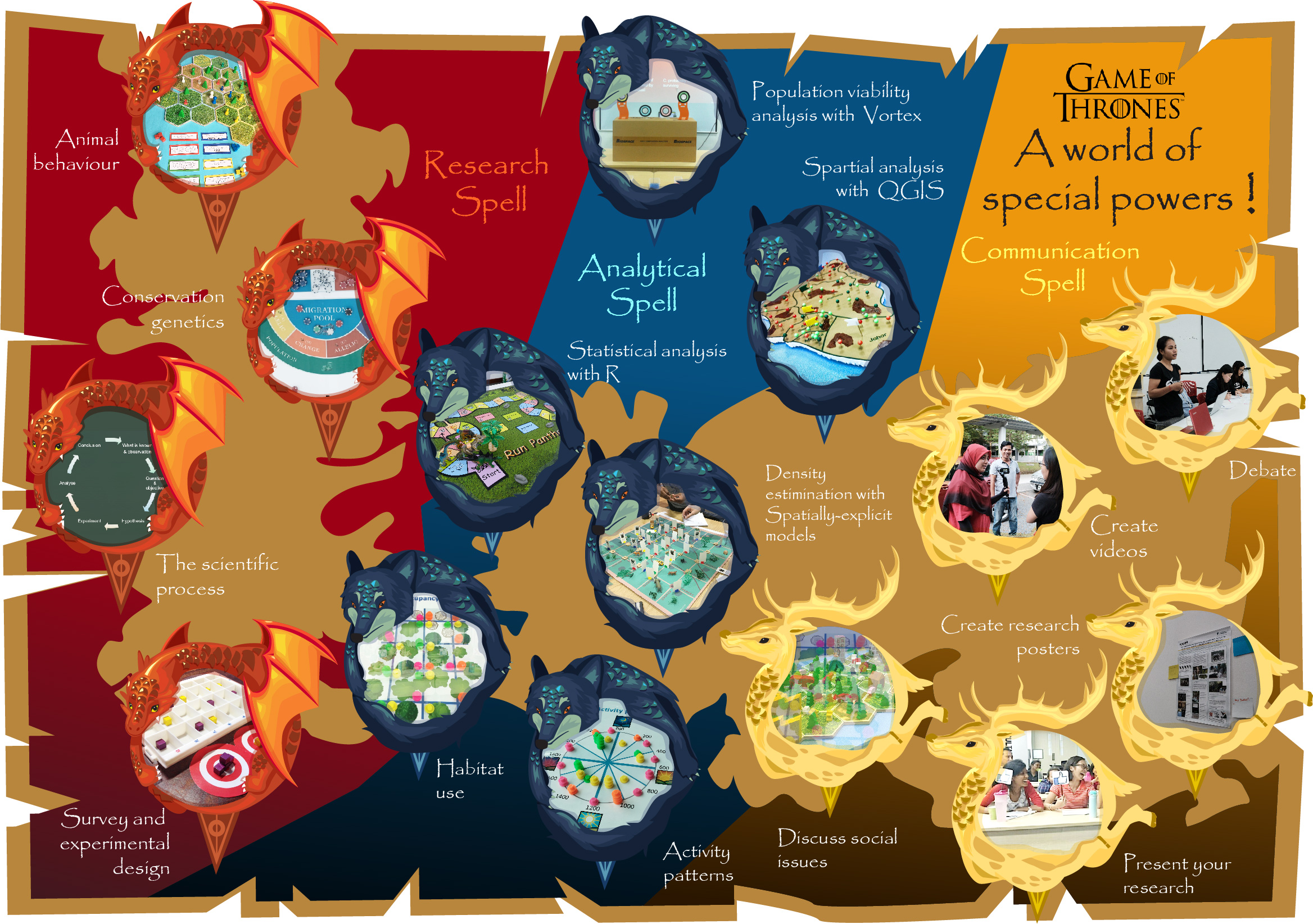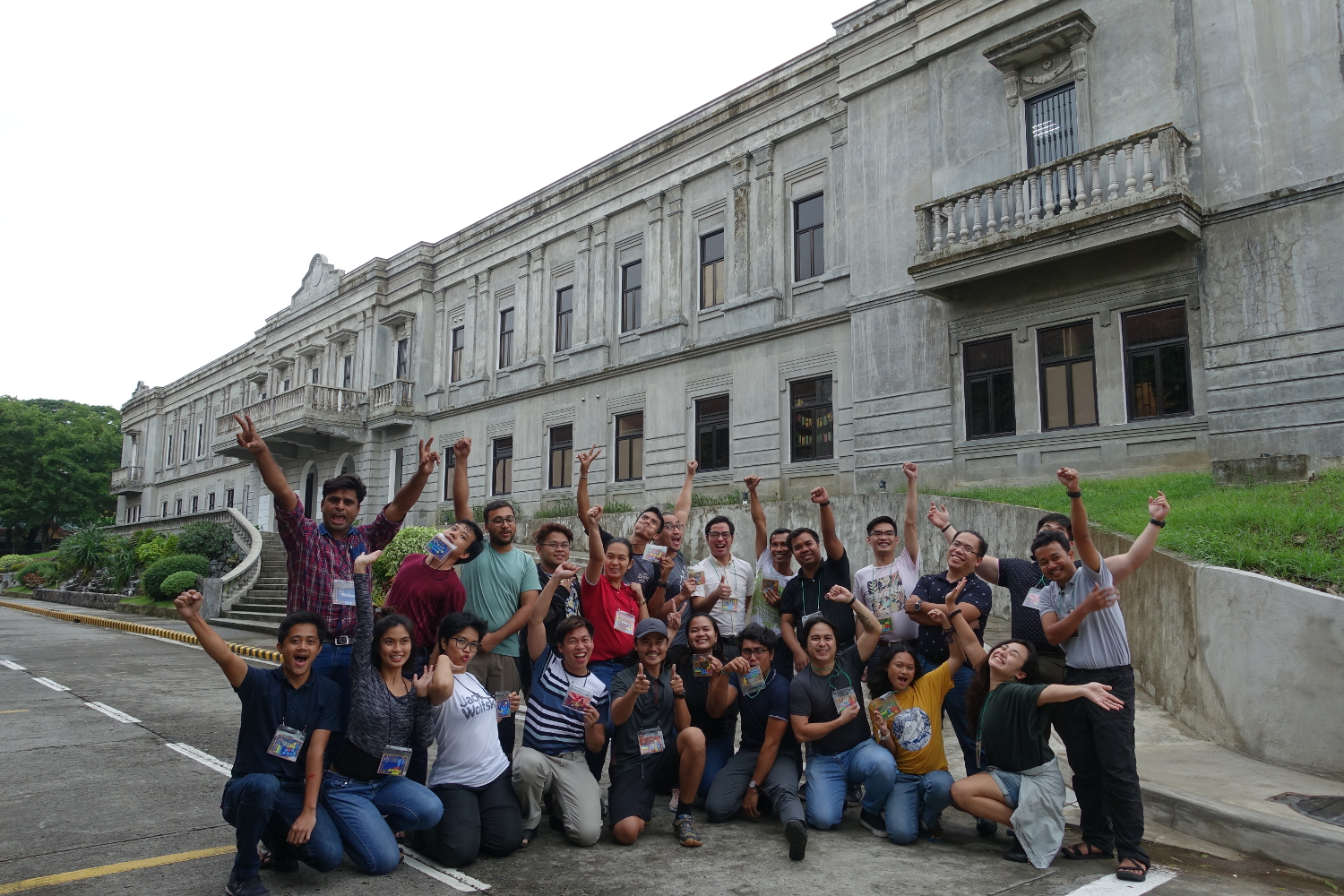News
Wildlife Conservation Course 2019 – Game of Thrones theme – Philippines
From the Kingdom of Westeros, we hear about the storms of swords, a clash of kings, and even a dance with dragons. Steering clear of the fantasy and the action, we are left with something obvious: Man-made conflicts that leave the world exposed to larger threats. This calls for a conservation course that equips fearless conservationists to tackle real-world environmental challenges.
Devised and led by University of Oxford Postdoctoral Researcher Cedric Tan, ‘Wildlife Conservation Course 2019’ will be coming to the Philippines on 28 July to 10 August 2019. There is also an eLearning component from 22 to 26 July to begin with the basics. This course employs team challenges to immerse students in educational scenarios that engage the mind and hone their conservation skills.
“This is fifth year we are conducting this course and the past four were huge success,” Cedric said. “Students went away inspired, participants bonded, and we built capacity among those working in governmental and non-governmental organizations to collaboratively protect wildlife and the environment.”
To add to the adventure, each year’s course is crafted with a distinct theme. In 2015, participants competed in ecological challenges for cards that would aid in a final battle against tough opponents. The 2016 edition placed contestants in the shoes of a detective to solve the murder of a Malaysian Tiger which could be due to one of several real-world causes of species extinction. 2017 was a year for superheroes to save the world’s carnivores from extinction. Last year, mythical creatures in training learnt spells, solved mysteries and defied curses. This year’s course adapts the richness and complexity of the story of Game of Thrones and promises suspenseful story filled with medieval fantasy.
In the battle between kingdoms and, definitely, dragons, participants will learn special powers in research, analysis, and communication to arm themselves in combat. Beyond functioning as teaching tools, these games are also educational experiments. In collaboration with Associate Professor Ahimsa Campos-Arceiz and Dr. Jiin Woei-Lee from the University of Nottingham Malaysia campus, Cedric’s research team has recorded behaviour, grouped students into teams based on their personality types, and observed the details of interaction and effectiveness of the course. The findings will support the creation of teaching that truly inspires.
“We record students’ perception of the lessons, learning effectiveness via quizzes before and after each lesson, and student behaviors such as asking questions, bored behavior, and joyful (laughing, cheering) behavior,” Cedric said. “We also keep track of bigger-picture impacts like long-term student recall of content.”
“Our research has demonstrated multiple benefits of this experiential gaming approach such as increased attention retention, increased engagement and added intrinsic motivation.” Cedric’s research is based on the integration of psychology, arts and social sciences, but his heart is with environmental conservation. This work on teaching has recently been published (https://peerj.com/articles/4509/; https://www.youtube.com/watch?v=BS68WOw0zsY). Cedric’s teachings provide an invaluable service to countries in Southeast Asia, a region which is exceptionally rich in species diversity but struggling with environmental degradation at every turn. Philippines – and all of Southeast Asia – needs more citizens and professionals engaged with conservation.
To apply to the Wildlife Conservation Course 2019, please send your two-page CV and a one-paragraph personal statement to wildcruwcc@gmail.com on or by 24 May 2019.








